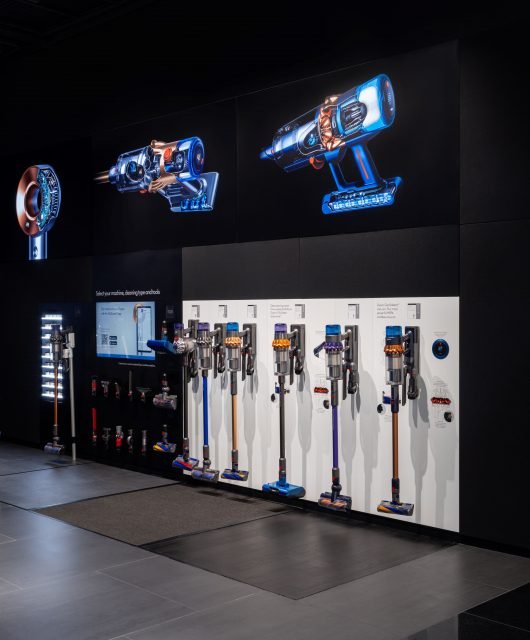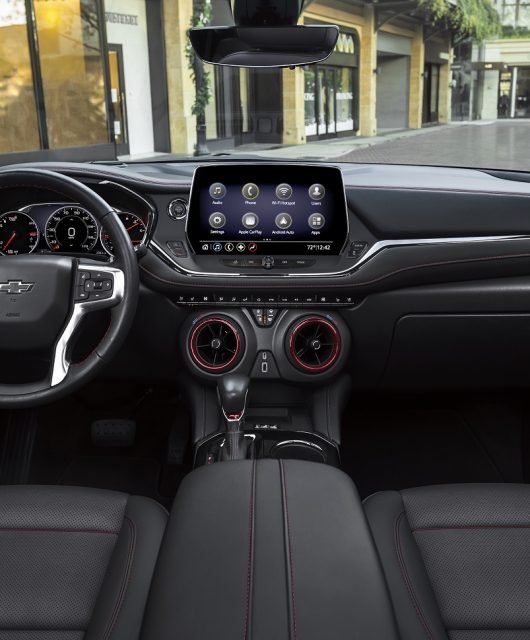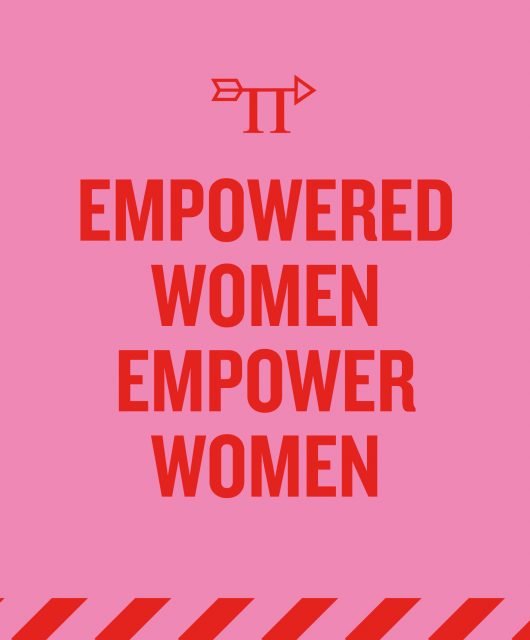Week: 20th – 24th April
by Interbrand
The latest of Interbrand’s regular round-ups of brands’ responses to the global COVID-19 pandemic
Technology
SAP is hosting a Virtual Take Your Child to Work Day, offering kids and parents the opportunity, while at home, to continue the tradition and featuring a host of stars from sportspeople to supermodels and musicians to social media influencers. The event will be hosted on YouTube at noon EDT on Thursday, April 23 (youtube.com/sap). The firm has also teamed up with No Kid Hungry, a charity organization dedicated to ensuring continued access to three healthy meals a day for children in need, especially during the pandemic.
So far, it has been calculated that the five biggest US tech firms – Google (Alphabet), Facebook, Amazon, Microsoft and Apple – have promised more than $1.25 billion in economic relief between them.
In its latest announcement, Apple has promised to donate a portion of sales from Product Red products to a Covid-19 relief fund. Product Red donations normally go toward fighting HIV/AIDS, but the organization has started directing money toward Covid-19 responses in light of the pandemic. And Apple is the latest tech company to tap its wealth of consumer data to help public officials fight the coronavirus.
Facebook-owned social platform Instagram is making it easier for small businesses to feature gift cards, online food orders and fundraisers in their profiles or stories. In the U.S. and Canada, Instagram users will be able to tap on a gift card or food order to make a purchase through a company’s site. Instagram users can spread the word by resharing the stickers in Stories, to encourage their friends and followers to also support small businesses.
It hopes the feature will help small businesses ramp up sales. This, along with Facebook’s recent launch of gift cards for small businesses, is meaningful because some 7.5 million small businesses are at risk of permanently closing over the next five months, should the pandemic and economic shutdown continue, according to a survey published this week by Main Street America, a network of 300,000+ small businesses.
Facebook reports that there are 140 million businesses across the Facebook apps and 8 million of them are advertisers. The majority are small and medium-size businesses. On Instagram, 90% of accounts follow at least one business, according to the company. And a Facebook survey found 76% of Instagram users say brands on the platform are “entertaining” and 77% say the Instagram profiles are “creative.”
Microsoft is working with a consortium of pharmaceutical companies to recruit people who have recovered from Covid-19 to donate their plasma, which could be used in treatments for the disease. To help get the word out, the company is launching a chatbot, which it refers to as its plasmabot, to lead people through a series of questions to determine if they’re a candidate to donate plasma.
The plasmabot will also provide information about the procedure and direct them to a nearby site where they can safely make the donation. After conducting its own research into the approach, Microsoft’s head of research Peter Lee said he believes it has the “potential to save lives.” So the company is setting aside computing resources and other infrastructure, as well as engineering talent. It is also promoting the plasmabot through a website, and its search, web and social channels.
Sports & Media
Some of the world’s top stars have helped to raise nearly $128 million for the World Health Organization during the coronavirus pandemic by performing in a concert broadcast globally. Dozens of celebrities and musicians, including Lady Gaga, Stevie Wonder and the Rolling Stones, took part in the 8-hour show called One World: Together At Home. Global Citizen, the international advocacy group that organized the event, said that $127.9 million had been pledged in donations.
The show, which also showed featured stories about frontline workers, was streamed live on various online platforms and aired on NBC, CBS and ABC in the US; it will be broadcast in the UK by the BBC. Other partners included Analog Devices, Cisco, Citi, Coca-Cola, GSK, IBM, Johnson & Johnson, Proctor and Gamble, Pepsi, State Farm, Target, Teneo, Verizon, Vodafone, Verizon, and WW International. Bloomberg Philanthropies helped support the initiative, including committing $8 million.
Without actual games to look forward to for the foreseeable future, the NBA has turned to alternate forms of competition during the coronavirus quarantine. After putting together an NBA 2K players-only tournament, the next event was a HORSE Challenge (for non-basketball fans, a shot-for-shot matching competition) consisting of current and former NBA and WNBA players. Each player took their shots from their own isolated homecourts. The HORSE Challenge will help more than sports-starved fans, as State Farm plans to donate more than $200,000 on behalf of the participants to charities focused on coronavirus response efforts.
Top-flight French football club Paris Saint-Germain, in collaboration with ALL (Accor Live Limitless) and other partners, is helping to support healthcare professionals who are fighting the epidemic on the front line every day. The Club has launched a “Tous Unis” (All Together) jersey available on the official PSG online store, bearing the logo of Assistance Publique – Paris Hospitals (AP-HP), the Greater Paris University Hospitals and 100,000 healthcare staff. The funds raised will go towards supporting healthcare professionals.
Business & Energy
In the midst of the Covid-19 crisis, many companies are reducing their workforces, while others can’t fill jobs fast enough. People + Work Connect brings these two groups together to help get people back to work faster. Created by chief human resources officers from Accenture, Lincoln Financial Group, ServiceNow and Verizon, the global initiative provides new ways to keep people employed.
It allows companies who’ve laid off or furloughed employees to work together with other businesses with an urgent need for workers. The tool, developed pro bono by Accenture and in collaboration with the four companies’ Chief Human Resources Officers, is meant to facilitate the transfer of products and services in the workplace. It is free for employers across all industries, although only companies with 100 or more jobs to fill or employees to place can join.
$10 billion market cap financial services company Discover has helped to facilitate PIN-less transactions as shoppers no longer want to touch keypads. It has also allowed small business owner customers to defer payments on various loans and removed early withdrawal fees for those with CDs. “We are clearly getting a lot of demand from customers calling us to extend their payments. I think there is tremendous uncertainty out there in terms of how much impact all of the government stimulus will have to offset the stress that consumers are feeling right now,” Discover CEO Roger Hochschild said.
Retail & Fashion
Spice and condiment brand McCormick has debuted several marketing initiatives to cater to the greater number of people making meals at home. Noticing an increase in people’s questions about cooking at home, McCormick began a Q&A series inviting consumers to send questions to members of the company’s test kitchen through its website and social media channels.
McCormick is also monitoring search results to see which questions it can answer indirectly. According to McCormick, the series received more than 300 inquiries in its first three days, with people asking for a wide range of advice, from instructions for baking their own bread to the meaning of “tbsp.” Social media has become a testing ground for McCormick to quickly roll out new programs. On Facebook and Instagram, McCormick food stylist Rachel Miller and executive chef Kevan Vetter have begun hosting their own step-by-step cooking shows, filmed in their home kitchens. On Spotify, McCormick has created three playlists to help set the mood while baking, cooking or preparing a weekend brunch. The company selected songs from consumer submissions.
UK supermarket Tesco has constructed a dedicated pop-up store for staff working at the newly-constructed NHS Nightingale ExCel hospital in London. The 24-hour shop was adapted from an existing retail unit next to ExCel with a marquee at the front to increase the amount of space. It will be staffed by 40 colleagues from nearby Tesco stores. Any surplus food from the store will be redistributed to frontline NHS staff where possible and then to those who need it across the borough.
Camera maker Nikon is offering free digital photography classes online. The classes, which are typically anywhere from $15 to $50 each, are available at Nikon School Online completely free until April 30. The 10 virtual courses cover topics such as photographing pets and children, shooting landscapes, recording video and more. Other courses are in-depth videos on how to use specific Nikon products. Additionally, Nikon is offering its Nikon Live streaming events for free. The pre-recorded events include talks from photographers and videographers on subjects ranging from camera settings to how to choose lenses and from behind-thescenes stories to lectures on creativity.
Health & Pharmaceuticals
Health service company Cigna has announced it is launching Dental Virtual Care, which will be available through Cigna’s growing network of dental providers who offer teledentistry. The company is also partnering with The TeleDentists, a national virtual care dental provider with more than 300 dentists. Through a video consultation, licensed dentists can triage urgent situations such as pain, infection, and swelling, and guide the customer on next steps. If necessary, the dentist will prescribe medications, such as antibiotics and non-narcotic pain relievers. Cigna Dental Virtual Care will be available this month to over 16 million dental customers enrolled in Cigna’s employer-sponsored insurance plans at no cost through May 31, 2020.
Automotive & Manufacturing
Rideshare company Lyft is tapping its drivers to help with delivery needs. While it has not historically offered delivery services, the company is now getting into the space to help partners, ranging from nonprofits to businesses, get meals, groceries, and other necessities to people in need. The initiative is called Essential Deliveries. Approved partners will be able to use Lyft’s platform for scheduling rides, known as Concierge, to set up deliveries.
Lyft said it will consider expected delivery demand and notify the appropriate number of drivers who will be able to opt-in for delivery requests. It will expand to more drivers as warranted. In some cases, Lyft or Mastercard will donate rides and deliveries; in other cases, businesses are paying for deliveries. For instance, Dole Packaged Foods will use Lyft to deliver fruit products from its warehouses to senior facilities in Seattle. “It is often difficult for distributors to get to the facilities in a timely manner. Especially during the virus, the ‘last mile’ is oftentimes the most difficult,” said Dave Spare, vice president of marketing at Dole Packaged Foods. Dole is footing the cost of delivery and donating the goods, which is together expected to be around $1 million.
Meanwhile, ride-sharing rival Uber is also looking for new ways to help the underserved get access to foods during the pandemic. The company said Wednesday it is expanding its 1-833-USE-UBER to Uber Eats delivery so older adults, or anyone who prefers a conversation when ordering a meal or doesn’t have access to the Uber app, can place an order using an SMS or text-based mobile phone. Initially, it will only be available in the Greater Miami area and New York City’s five boroughs, the company said.
Hospitality & Travel
In London, website Dishpatch has been set up as a directory of small, independent businesses that are offering food & drink deliveries. “With the lockdown in place, it took little more than two days for all major supermarkets to see their delivery services fully booked for over three months,” said the company. “The idea of popping to the shops was far from appealing where, to keep in-line with social distancing rules, stores were limited to 30 customers with queues to get inside lasting as long as four hours.
Meanwhile, restaurants were going out of business and small independent stores were rapidly losing footfall customers, desperately recalibrating their businesses in order to survive the ensuing recession. Their answer was to pivot to groceries. After all, these businesses had produce that far superseded the quality of products you can get in the supermarkets. The problem: no one knew about them. Or, at least, a lot more could do with discovering them, instead of continuing to queue outside supermarkets.” They have now sent over 60,000 customers to independent outlets.
AirBnB are having to innovate to maintain their business during social distancing, while staying true to their positioning, which is about authentic local experiences and the idea of belonging. They have just launched a new service: online experiences. Basically, unique experiences you can share with others online, from virtual cocktail sessions to meditation, entertainment and education.
Flight booking website Skyscanner have followed suit, with virtual guides to destinations and experiences, from world museums you can explore from home and how to experience live performances from the comfort of your sofa, to nature videos and wildlife camera streams.
To read the full report, please download here.
To access daily Brand Moves, please visit www.brandchannel.com





